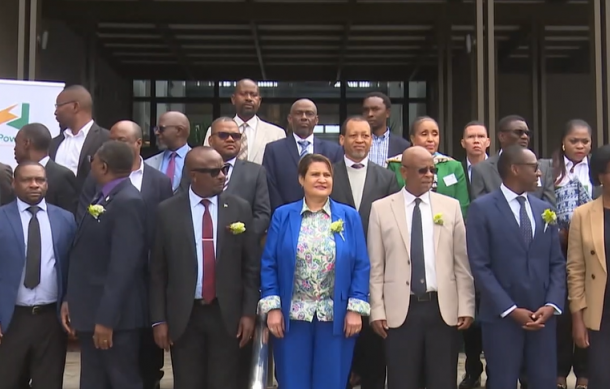
Power generation projects within the Southern African Power Pool (SAPP) and the creation of cross-border transmission lines are vital towards achieving a unified, energy-secure Africa.
This is according to the Deputy Minister of Industries, Mines and Energy, Gaudentia Krohne, who opened the 58th SAPP EXCO meeting at Swakopmund.
"I urge you to focus your discussions on addressing the challenges that confront our region. Namibia, through Nampower, is leading the charge in energy trade and cross-border collaboration. Our current initiatives, such as the 120 MW Independent Power Producers project, which comprises six 20 MW units distributed across multiple sites, and Scorpion mines' dedicated 100 MW solar PV supply, are key contributors to enhancing regional energy security."
Among others, the 58th Southern African Power Pool EXCO meeting is discussing issues of planning, operations and markets within the SADC electricity and energy sector.
The deputy minister said Namibia imports over 60 per percent of its electricity despite the country having abundant renewable energy resources.
"We are exploring future markets and industries for green hydrogen. Our primary challenge lies not in resource scarcity but rather in the necessary transformation. The pressing question is how to effectively leverage these resources to fuel sustainable economic growth."
Kröhne believes innovation will transform the regions' power pool.
The SAPP Chairperson stressed that SADC is faced with a huge power deficit despite diverse sources of electrical power generation.
He revealed that Zambia and Zimbabwe are dominated by hydropower generation and the drought had a negative impact on power production.
The Chairperson of SAPP, Nathaniel Maphate. The interconnected power system helped in importing some power from neighbouring countries to bridge the gap. This, however, has not been enough, particularly considering that one of the main sources of non-hydropower, South Africa, is itself also facing power challenges. We have thus witnessed load shedding in some countries in the SADC region, including South Africa, Zambia and Zimbabwe. The power shortage in some of the countries is compounded by ageing infrastructure and high economic growth, resulting in increased demand for electricity in SADC."
Maphate noted that the approval of the creation of the Regional Transmission Infrastructure Financing Facility is crucial in providing innovative ways to finance power transmission projects within SADC.
This, he believes, will result in an increase in the volumes of electricity traded among member states.





